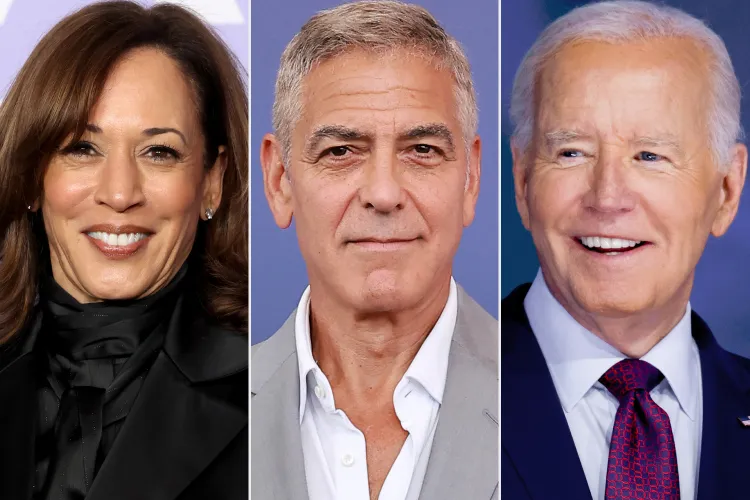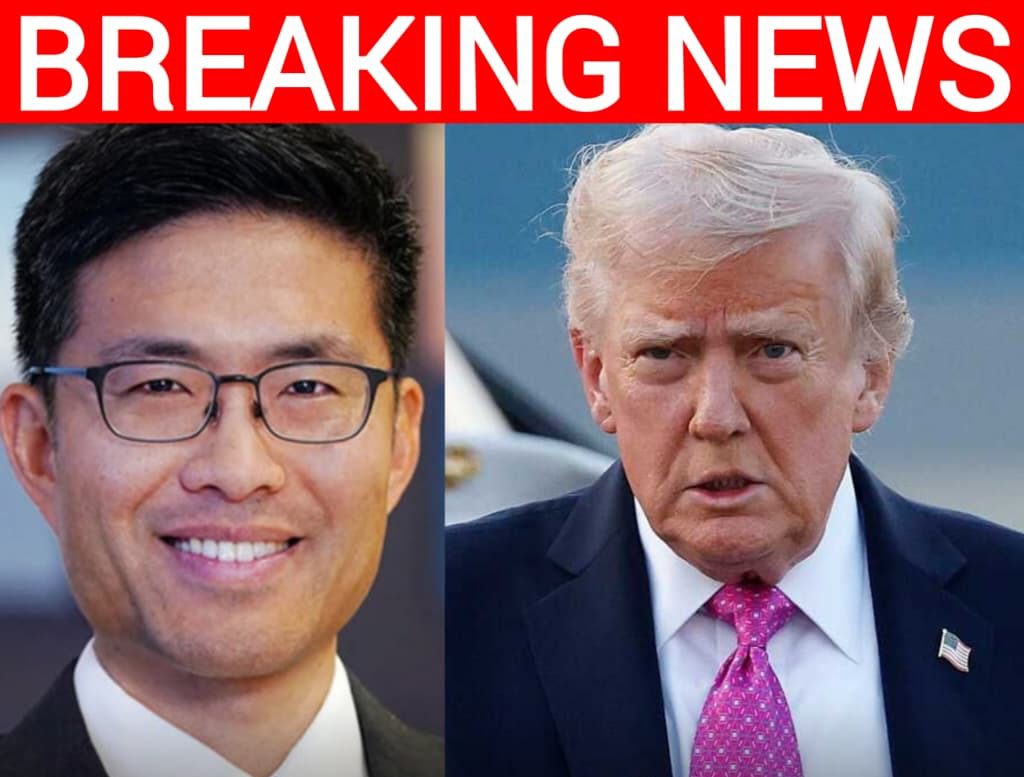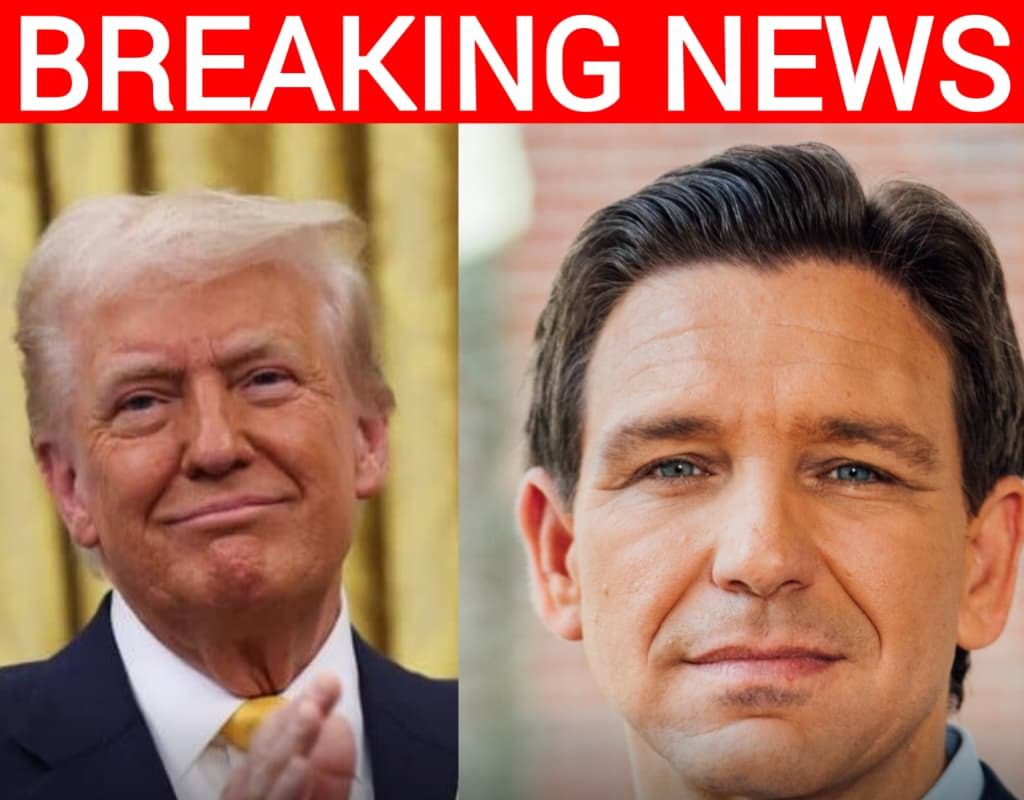George Clooney Says He Has No Regrets About His Biden Op-Ed but Calls Kamala Harris’ Presidential Campaign a “Mistake”
In a revealing and deeply reflective interview aired on CBS Sunday Morning on November 2, 2025, George Clooney broke his silence about the most politically charged year of his life — and about the decisions that reshaped the Democratic Party heading into the 2024 election. The 64-year-old actor, director, and lifelong Democrat told interviewer Tracy Smith that while he stands by every word of his now-infamous New York Times op-ed urging President Joe Biden to withdraw from the race, he also believes the party made a critical mistake by rallying behind Vice President Kamala Harris as the nominee.

Clooney’s op-ed, titled “I Love Joe Biden, but We Need a New Nominee,” published in July 2024, became an instant flashpoint. At the time, Democrats were reeling from Biden’s halting debate performance and a string of public appearances that reignited questions about his age and stamina. Clooney, who had co-hosted a glitzy Los Angeles fundraiser just weeks earlier that brought in nearly $30 million for the campaign, wrote that the man he met backstage that night was not the Joe Biden he had championed for decades. “He was tired,” Clooney wrote. “Not because he’s lost his heart or his resolve, but because time catches up with all of us.”
The op-ed sent shockwaves through Washington. Coming from one of Hollywood’s most influential voices — a man whose fundraising dinners had attracted everyone from Barack Obama to Nancy Pelosi — it was impossible to dismiss as a celebrity stunt. Within days, it became part of the internal pressure campaign that eventually convinced Biden to step aside, a move that opened the door for Kamala Harris to become the Democratic nominee.
Now, more than a year later, Clooney told CBS he doesn’t regret writing it — not even after the controversy that followed. “You can’t regret telling the truth,” he said plainly. “I didn’t do it to hurt Joe Biden. I did it because I believe in what’s right for the country. But looking back, I think what came after — how quickly the party moved to Kamala — that was a mistake.”
His use of the word mistake was deliberate. Clooney didn’t frame it as a personal failing of Harris, but as a structural one within the Democratic establishment. “It wasn’t that she’s not talented, not capable,” he clarified. “It’s that she was put in an almost impossible position — trying to prove she’s the change while defending the very administration she’s part of. You can’t run away from your own record, and you shouldn’t have to. But in politics, that’s the tightrope they asked her to walk.”
The actor’s critique resonates beyond Hollywood circles because of how intertwined he’s been with Democratic fundraising and messaging over the years. Clooney’s political friendships run deep — from his close ties to Barack Obama, who attended his Lake Como wedding, to his decades-long work with humanitarian organizations in Sudan and his public fights for voting rights. When Clooney speaks about politics, it’s not from a place of detachment but from the lived experience of someone who’s helped shape campaigns behind the curtain.

In 2024, his call for a new nominee wasn’t just another celebrity statement — it was a crack in the Democratic armor. The Biden campaign had been struggling to calm nerves after the June debate, but when Clooney’s op-ed landed, the ripple effect reached party donors, strategists, and even the White House. Within two weeks, Biden made the historic decision to bow out, marking the first time in modern American politics that an incumbent president abandoned a reelection bid after securing his party’s delegates.
Clooney’s comments about Harris now re-ignite the debate over whether the party acted too hastily. “We should have had a mini-primary,” he said. “We had governors ready, senators ready. The country deserved to see them all tested in daylight.” That sentiment echoes what he wrote in his original op-ed — a call for transparency and open debate rather than an immediate coronation.
Kamala Harris’ campaign, launched in late July 2024, was historic and polarizing. Within weeks, she broke fundraising records, drew massive rallies, and positioned herself as a unifier — but also faced intense scrutiny. Republicans attacked her prosecutorial past, while progressives criticized her cautious messaging. To Clooney, that duality was the campaign’s undoing. “She had to spend too much time explaining the past instead of painting the future,” he said.
Clooney’s remarks drew immediate reactions online. Some praised his honesty, calling him a rare example of a Democrat willing to question party orthodoxy without malice. Others accused him of Monday-morning quarterbacking — undermining Harris after the fact when it was convenient to do so. But the actor insisted his point was about learning, not blame. “Everyone involved wanted to do what was best for the country,” he said. “We just didn’t slow down enough to think through the politics of perception.”
The CBS segment also touched on the intense backlash Clooney faced in 2024 — particularly from Hunter Biden, who unleashed a profanity-laced tirade on a podcast calling Clooney “a self-righteous Hollywood phony.” Clooney responded with quiet restraint at the time, and on Sunday, he chose to keep that same tone. “I wish him well,” he said. “I understand the emotion behind it. It was his father.”
What stands out in Clooney’s demeanor is the mix of conviction and regret. He doesn’t waver on his belief that Biden stepping down was necessary. He still calls him “a great man who saved the soul of this nation.” But he now acknowledges that the succession plan — or lack thereof — left the party fractured. “There was no roadmap,” he said. “And when you’re flying without a roadmap, you sometimes crash-land.”
Political analysts have noted that Clooney’s comments reflect a broader sentiment within Democratic circles — that the party’s leadership acted out of panic rather than precision. His remarks arrive as Democrats regroup for 2026 and beyond, debating what lessons the last election cycle holds for the next generation of candidates.
Clooney’s influence in this conversation is undeniable. When he speaks, headlines follow. But even in the political noise surrounding his comments, there’s a tone of introspection. He doesn’t sound like a man seeking the spotlight, but rather someone trying to make sense of decisions that reshaped the party he’s supported for decades. “We all care about this country,” he said near the end of the interview. “And sometimes caring means saying something people don’t want to hear.”
As the segment closed, the camera lingered on Clooney for a few seconds longer than usual — a fitting metaphor for a man who’s spent his life in front of cameras but rarely lets them see what’s behind the curtain. His reflection on Harris’ campaign isn’t about bitterness or political posturing. It’s about consequence — the cost of choices made in moments of urgency, and the humility of acknowledging that even good intentions can lead to flawed outcomes.
For George Clooney, that humility seems to be the through-line. “I still believe in Joe Biden,” he said. “I still believe in Kamala Harris. I believe in what they tried to do. But believing in someone doesn’t mean pretending everything went right.”
It’s a statement that captures the complexity of politics today — and the honesty that’s often missing from it. Whether his words will spark another wave of introspection among Democratic leaders remains to be seen. But one thing is certain: Clooney’s political voice, once dismissed as celebrity activism, now carries the weight of experience, influence, and unflinching candor.


